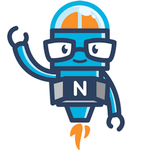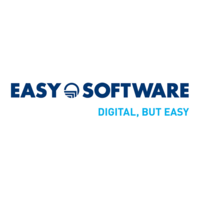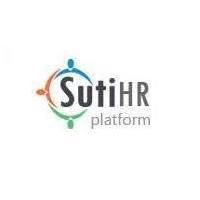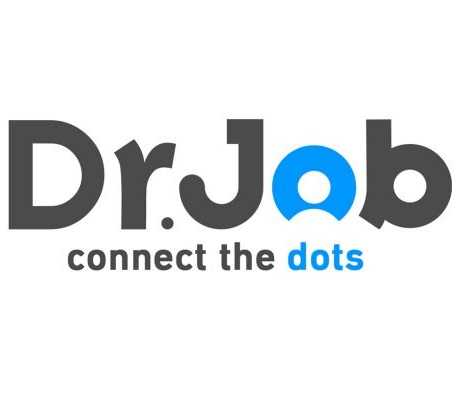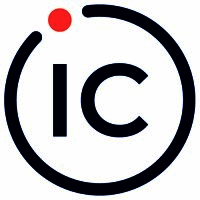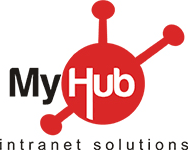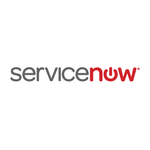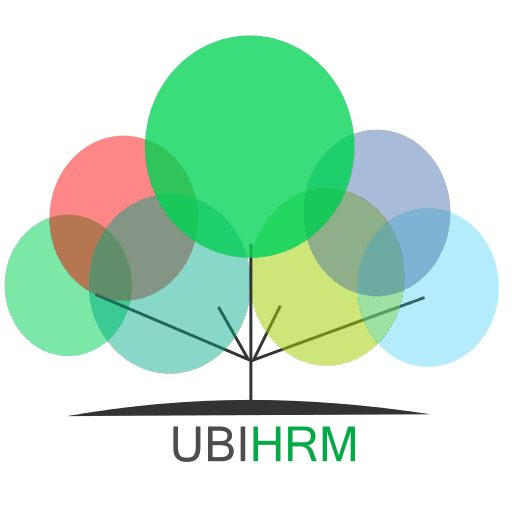What Is Employee Portal Software?
A unified platform known as employee portal software gives staff members quick access to crucial company data, resources, and capabilities. Employees can use it as a virtual gateway to handle both personal and work-related duties, like checking pay stubs, making leave requests, accessing training materials, and interacting with coworkers.
By increasing productivity, enhancing communication, and simplifying procedures, this software aims to improve the working environment for employees. Self-service choices, task automation, safe data storage, and mobile accessibility are just a few of its many features. It can also be tailored to fit the unique demands and specifications of various companies and sectors.
The capacity of employee portal software to raise general employee satisfaction and engagement is one of its main advantages. Employees feel more connected and knowledgeable about the business and their role within it when pertinent information and resources are easily accessible. Higher levels of job satisfaction, productivity, and retention may follow from this.
Employers may easily manage and monitor a variety of HR procedures, including payroll, benefits, and performance reviews, with the help of employee portal software. Additionally, it makes it easier for departments and employees to collaborate and communicate, which fosters a more harmonious and productive workplace.
The cost, compatibility with other systems, security features, and convenience of use are all significant factors to take into account when choosing employee portal software. Additional features like analytics, dashboard customization, and integration with other HR solutions might be included in certain packages.
What Are The Recent Trends In Employee Portal Software?
Software for employee portals has changed dramatically in recent years to satisfy the constantly shifting requirements of contemporary companies. Numerous causes, including the growth of remote work and the increasing significance of employee engagement and productivity, have contributed to these improvements. Buyers should be aware of the following leading trends in employee portal software:
1. Mobile Accessibility: Employee portal software that is mobile-friendly has become more and more popular as more workers now work remotely or while on the go. As a result of this trend, mobile-ready portals with all the features and functionalities required for smartphones and tablets have been developed.
2. Integration With Other HR Tools: Payroll, performance management, and application tracking systems are just a few of the HR tools that employee portal software has merged with as companies work to optimize their HR procedures and data management. The smooth transmission of data between various HR processes made possible by this integration facilitates the management and analysis of personnel data.
3. Personalization And Customization: Employee portal software now provides the ability to customize and personalize the portal, enabling staff members to adapt it to their own requirements and tastes. This can involve personalizing their dashboard, picking the kinds of alerts they get, and deciding on the portal's style and structure.
4. Employee Self-Service: As self-service technology has grown in popularity, self-service features have also been included to employee portal software. Employees can now view their own data, including pay stubs and leave requests, without contacting management or HR.
5. Improved Employee Communication: Employee portal software was created with the understanding that good communication is essential in every firm. Regardless of where they work, employees can collaborate and communicate more effectively thanks to features like news feeds, forums, and chat and messaging.
6. Emphasis On Employee Engagement: Businesses now place a high premium on employee engagement, and employee portal software was created to raise employee happiness and engagement. This covers things like gamification components, employee surveys, and social recognition. All things considered, these developments in employee portal software demonstrate the demand for an intuitive, integrated, and captivating platform to assist the contemporary workforce. It is crucial for buyers to take these trends into account and select a solution that fits the objectives and requirements of their company.
Benefits Of Using Employee Portal Software
For any company trying to improve internal procedures and human resource management, employee portal software is an essential tool. With the use of this software, businesses can establish a centralized platform that staff members can use, offering them a range of self-service features and the ability to remain informed about pertinent developments. Here are some important advantages to consider if you're thinking about spending money on employee portal software:
1. Better Communication And Collaboration: Regardless of department or location, employee portal software facilitates easy and effective communication between staff members. Team members can work together on projects, exchange ideas, and resolve issues by using the various communication channels it provides, including forums, chat, and video conferencing. As a result, the organization's teamwork and productivity are improved.
2. Increased Employee Engagement: Having an employee portal makes workers feel like they belong and motivates them to get involved in business events. They have access to crucial information about their jobs, including training materials, business policies, and benefits, which improves their comprehension and engagement with the company. Furthermore, portals frequently include tools like incentive and recognition programs that encourage workers to improve their performance.
3. Simplified HR Management: HR professionals may automate a number of processes, like managing leave requests and keeping track of attendance, with the help of employee portal software. This greatly lessens the workload associated with manual paperwork, allowing HR professionals to devote more time to strategic projects. Employees can also request adjustments and update their personal information, which are automatically reflected in the system and reduce the possibility of errors.
4. Cost-Effective: Businesses can save a lot of time and money by investing in employee portal software. Long-term cost savings might result from increased efficiency, less paperwork, and the automation of several processes. The software is also a cost-effective solution for businesses of all sizes because it is cloud-based and does not require costly hardware or infrastructure.
5. Improved Data Management: HR teams may more easily manage and monitor employee-related data thanks to employee portal software, which offers a centralized database. A comprehensive view of personnel data can be obtained by integrating this database with other programs, including payroll and performance management. Additionally, the risk of data loss or tampering is eliminated because the data is kept in a secure cloud environment.
Important Factors To Consider While Purchasing Employee Portal Software?
To make the greatest choice for your company, there are a number of crucial considerations to make when thinking about investing in employee portal software.
1. User-Friendly Interface: The ease of use of employee portal software is one of its most important features. Employees should be able to easily access information and complete activities with the software's user-friendly interface, which should include intuitive navigation and design components.
2. Customization Possibilities: Every company has different demands. There should be many customization choices in the employee portal software you choose so you can adjust it to the unique requirements of your company. Permission settings, layout choices, and personalized branding are a few examples of this.
3. Mobile Compatibility: Employee portals must work on mobile devices in the current digital era. Employee productivity and efficiency are increased as a result of being able to use the portal from anywhere at any time.
4. Integration Capabilities: For efficient workflow and data management, integration with other tools and applications utilized in your company is essential. Verify that the employee portal software you select is compatible with your current CRM, HRIS, and other pertinent systems.
5. Security Features: Security is a primary concern because the portal contains sensitive employee data. Seek out software with sophisticated security features like frequent backups, user access controls, and data encryption.
6. Scalability: Your company's demand for an employee portal will increase as it expands. Select software that is easily scalable to meet your changing needs and expanding workforce.
7. Customer Support: Employee portal software may occasionally experience technical problems or need help, just like any other software. Verify if the software provider has a track record of promptly and successfully resolving problems and provides dependable customer assistance.
8. Cost-Effectiveness And Pricing: Employee portal software comes in a variety of price points and levels of sophistication. To guarantee a strong return on investment, take into account the budget of your company and thoroughly assess the features and advantages offered by each piece of software. You may choose the best employee portal software for the requirements of your company by keeping these considerations in mind.
What Are The Key Features To Look For In Employee Portal Software?
In today's workplace, employee portal software is essential for increasing productivity, improving communication, and improving the employee experience. It can be difficult for purchasers to select the best option for their business when there are so many possibilities on the market. The following are the essential characteristics to search for in employee portal software to assist you in making an informed choice:
1. User-Friendly Interface: Employees without a lot of technical knowledge or training should be able to easily access and utilize the program thanks to its straightforward and intuitive design.
2. Customization Possibilities: Since every business has unique needs, the software ought to be adaptable to meet those needs. For a customized experience, this entails including branding components, color schemes, and logos.
3. Secure Access: The greatest degree of security measures, including data encryption, two-factor authentication, and frequent security updates, are essential because employee portal software includes sensitive information.
4. Mobile Compatibility: Given the increase in remote work, it is critical to have an employee portal that is mobile-compatible so that staff members can communicate and access information while on the go.
5. Communication Tools: To promote smooth teamwork and communication, a strong employee portal should include tools like group chat, discussion boards, and an employee directory.
6. Self-Service Functionalities: By enabling employees to handle their own data, including personal information, pay, and benefits, HR can handle less work and foster greater employee autonomy.
7. Document Management: A centralized document storage system should be included in the software so that staff members can see and exchange crucial documents including training materials, forms, and corporate regulations.
8. Performance Management: In the employee site, look for tools that let managers create objectives, monitor progress, provide comments, and carry out performance reviews.
9. Integration With Other Systems: The software should be able to interface with other necessary tools, like project management tools, payroll systems, and HR management software, in order to increase productivity.
10. Analytics And Reporting: Businesses may make data-driven decisions by utilizing advanced analytics and reporting services, which can offer insightful information about employee engagement, usage, and performance. Finally, while choosing employee portal software, consider these qualities and pick the one that best suits the particular requirements and objectives of your business.
Why Do Businesses Need Employee Portal Software?
A useful tool for companies of all sizes and sectors is employee portal software. It is an all-inclusive platform that enables businesses to control and optimize a range of HR procedures, employee self-service, and communication. An effective and user-friendly employee portal is essential to any organization's success in the increasingly digital workplace of today. The following justifies the need for employee portal software in businesses:
1. Centralized Information Management: The ability to compile all HR-related data in one location is one of the key advantages of employee portal software. Data on employees, payroll, benefits, policies and procedures, training materials, and more are all included in this. A central repository makes it easier for businesses to access and update data, guaranteeing accuracy and uniformity throughout the company.
2. Better Communication: A cohesive and successful workplace depends on effective communication. Employee portal software makes it easier for managers, staff, and other departments to communicate with one another. This saves time and lowers the possibility of misunderstandings by doing away with the need for numerous emails, phone conversations, or in-person meetings.
3. Simplified HR Procedures: Onboarding, performance reviews, and leave administration are just a few of the time-consuming and error-prone traditional HR procedures. These procedures can be automated and conveniently administered from a single platform with employee portal software. This lessens the administrative load on HR personnel while also increasing efficiency.
4. Improved Employee Engagement: A motivated and effective workforce is one that is engaged. Self-service options, goal-setting, recognition, and awards are just a few of the elements that employee portal software provides to encourage employee engagement. Businesses can promote a culture of growth and ongoing improvement by giving employees the freedom to take responsibility for their own performance and development.
5. Cost-Effective: Although purchasing employee portal software may first appear to be an extra investment, it can ultimately save companies money and time. Businesses can cut administrative expenses and increase overall operating efficiency by doing away with manual and paper-based procedures. 6. Enhanced Data Security Sensitive employee data security is a top priority for employee portal software. Businesses may guarantee that their data is secure and shielded from online threats by implementing sophisticated encryption and performing frequent backups.
How Much Time Is Required To Implement Employee Portal Software?
Your organization's unique demands and requirements will determine how long it takes to establish employee portal software. Implementing and integrating the software into your current systems and procedures can take a few weeks to several months on average. Since it necessitates cooperation and input from numerous stakeholders inside the company, the initial setup and configuration of the software usually takes the longest.
This entails establishing workflows and procedures, specifying user roles and permissions, and modifying the portal's structure and design to complement your business's branding. The size and complexity of your company can also affect how long it takes to implement. It could take longer for larger businesses with many divisions and locations to properly deploy the software and guarantee that every employee has access to the portal.
Your organization's level of technological skill should also be taken into account. A committed IT staff might be able to manage a large portion of the deployment process on their own, but if not, you might need to set aside more time for software supplier support and training. To guarantee a seamless and effective transition, it is generally advised to take the time to carefully plan and get ready for the deployment of employee portal software.
Before launching the portal, this can entail testing the technology, training users, and getting staff input. Employee portal software is a worthwhile investment for any firm seeking to promote employee engagement, streamline communication, and boost overall productivity, even though the deployment time may vary.
When selecting the best software for your company, it's critical to take your needs and budget into account. You should also speak with the software supplier to obtain a more precise estimate of how long it will take to deploy their particular product.
What Is The Level Of Customization Available In Employee Portal Software?
High levels of customisation are available in employee portal software to accommodate each organization's particular requirements and preferences. Depending on the software supplier and the particular features included in the selected package, several levels of customization may be possible. To adapt the platform to their company's culture and identity, customers can alter key components including branding, user interface, and accessibility in the majority of employee portal software.
Adding a corporate logo, colors, and graphics is a common branding customization option that gives employees a more unique and eye-catching experience. This helps to provide a feeling of familiarity and consistency inside the platform in addition to promoting brand identification. Employee portal software frequently enables companies to alter the style, menus, and widgets of the user interface to suit their particular workflows and procedures.
Because of this degree of adaptability, businesses may design an intuitive experience that suits their unique requirements and tastes. Another essential component of employee portal software customisation is accessibility. All employees may easily access and use the portal because to the accessibility features that most platforms offer, including language support, font and text size modifications, and compatibility with assistive devices.
In order to further improve the platform's performance and adjust it to the unique requirements of the company, numerous employee portal software suppliers also provide customized add-ons and integrations. Among other things, these add-ons might have functions like performance evaluation tools, document management, and time monitoring.
Which Industries Can Benefit The Most From Employee Portal Software?
Employee Portal Software, sometimes referred to as an intranet or employee self-service portal, is a digital platform created to improve employee engagement, expedite communication, and boost productivity inside a company. Many sectors can profit from this adaptable tool, including:
1. Corporate/White-Collar Industries: These sectors stand to gain the most from employee portal software, including marketing, finance, human resources, and IT. Many workers in these businesses typically need to work together, access pertinent information, and perform a variety of administrative duties. Employees may stay informed and finish tasks more quickly by using an employee portal, which can concentrate all the information and resources they need.
2. Healthcare: Employee portal software offers numerous advantages to healthcare institutions, such as clinics, hospitals, and private practices. Medical personnel may easily access patient records, appointments, and real-time updates when they have vital information at their fingertips. Additionally, by facilitating collaboration across divisions, the employee portal may streamline processes and provide a smooth workflow.
3. Manufacturing And Construction: Employee portal software can have a big impact on industries that need a lot of physical labor and on-site work. This program makes it simple for employees to access training materials, critical safety information, and other pertinent papers. Additionally, it can enhance cooperation among supervisors, employees, and project managers, which can cut down on delays and boost productivity.
4. Retail And Hospitality: These sectors stand to gain a great deal from employee portal software due to their diversified workforce and high turnover rate. In addition to giving workers access to crucial data and schedules, this platform gives managers a centralized way to manage payroll, shift modifications, and time-off requests.
5. Education: Educational establishments such as colleges, universities, and schools have found that employee portal software is beneficial. It can facilitate the sharing of updates, course materials, and grades by streamlining communication between students, instructors, and staff. An employee portal can also improve HR tasks like tracking time off, updating employee profiles, and sharing corporate regulations.
Conclusion
In conclusion, every firm hoping to increase overall efficiency and expedite staff management procedures must select the appropriate employee portal software. Before starting the software search, purchasers should carefully evaluate their needs and requirements. User-friendliness, integration capabilities, security, and scalability are all important considerations during the evaluation process.
Additionally, the buyer should consider the different software solutions' payment methods and budget. You may effectively browse the market and choose a program that best meets the needs of your company by using this buyer's guide. You may anticipate better communication, higher employee engagement, and effective data management with the correct employee portal software.
Before making a purchase, don't forget to look for software demonstrations and free trials to get a feel for it. In the end, purchasing employee portal software will help your company overall in addition to your employees. We hope that this article has given you useful information to help you decide what's best for your company.

